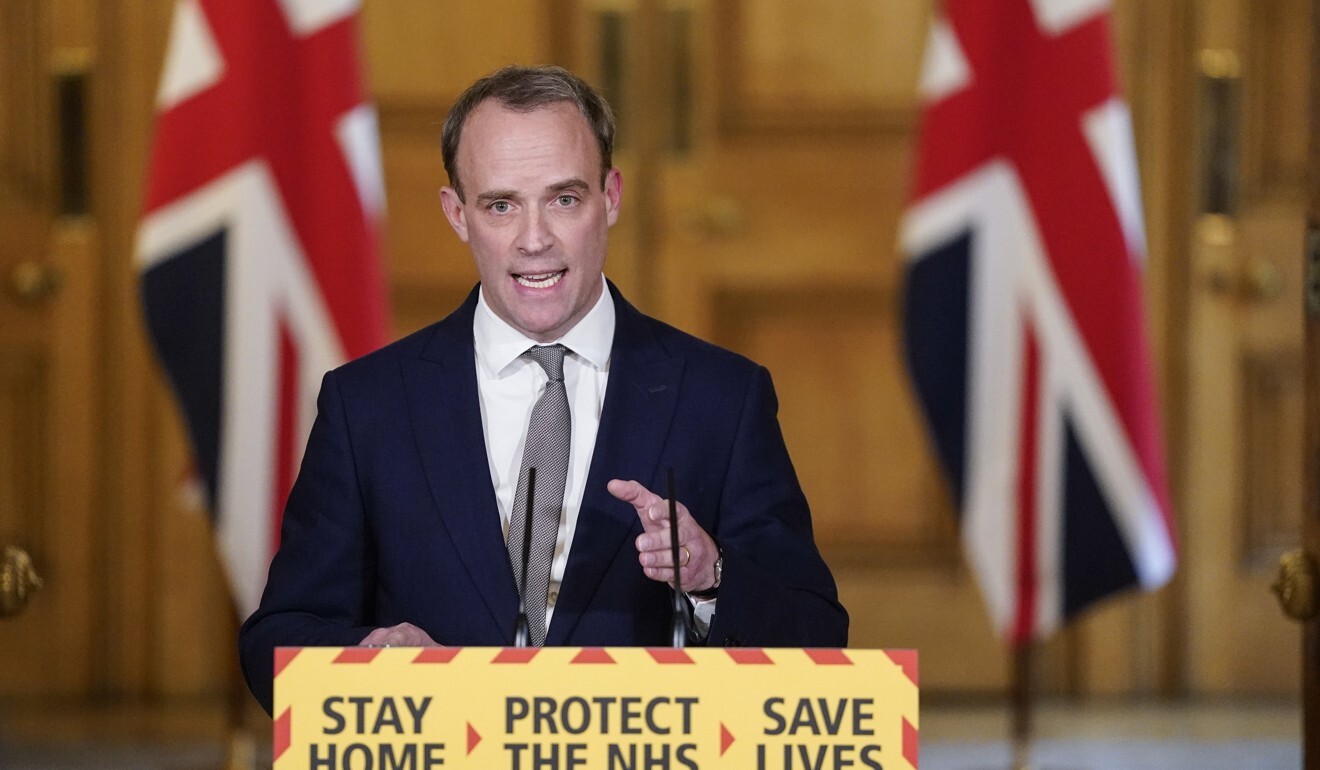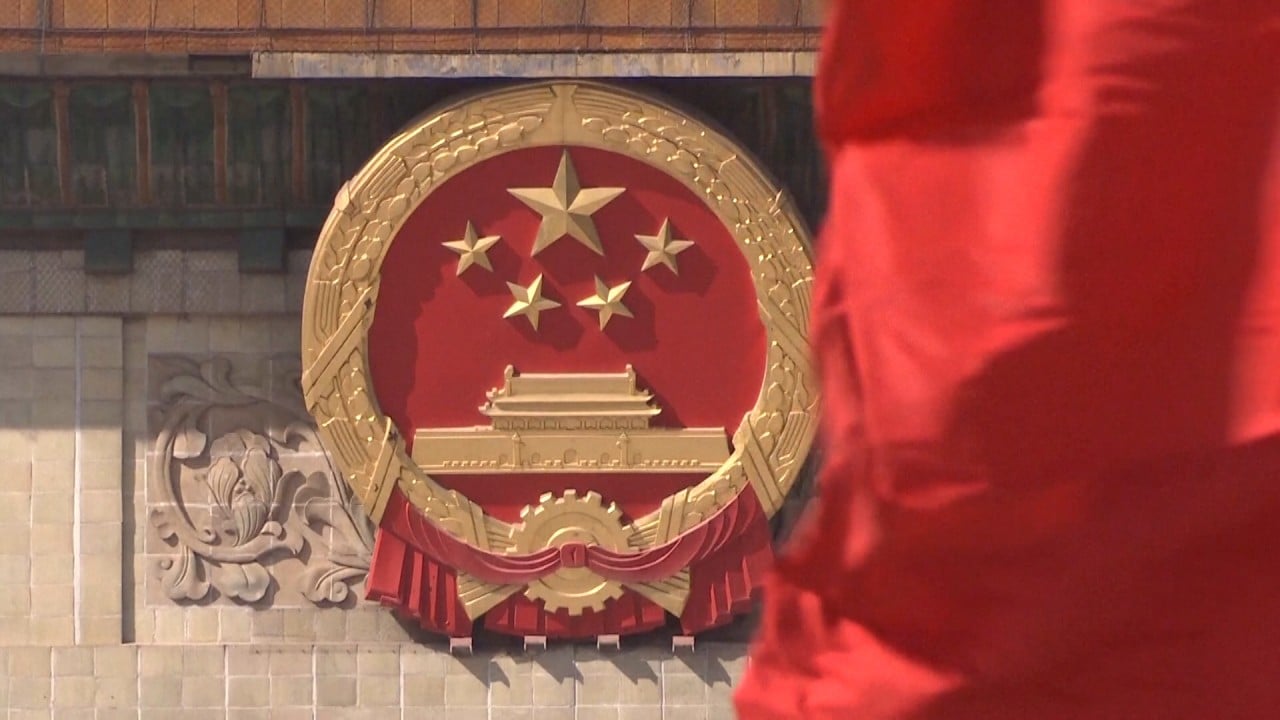
British foreign secretary tells Beijing to reconsider Hong Kong’s national security law and ‘step back from the brink’
- Dominic Raab writes in report that solution to city’s unrest and underlying causes must come from Hong Kong
- His comments come as the Law Society in the city issues statement calling for Beijing to exercise restraint
British Foreign Secretary Dominic Raab has urged Beijing to reconsider its plan to impose a national security law on Hong Kong, as well as to “step back from the brink and respect” the city’s autonomy.
Raab, writing in the foreword of a six-monthly report that covered incidents in Hong Kong from July to December last year, also said the proposed legislation would undermine the “one country, two systems” framework, and raised the prospect of prosecution in Hong Kong for political crimes.
But in a statement issued on Friday morning, the Hong Kong government called the report “inaccurate and biased”, and a government spokesman said speculation that the law would undermine the city’s freedoms was “alarmist”.
“We firmly oppose and express deep regret over the report’s inaccurate and biased remarks on the national security law and the high degree of autonomy enjoyed by the Hong Kong Special Administrative Region,” the statement read.

The government said it was “absolutely wrong and totally groundless” for the report to suggest the enactment of the national security law was in direct conflict with Article 23 of the Basic Law, in which Hong Kong was authorised to legislate national security law.
“It does not preclude the central authorities from legislating at a state level for national security,” the spokesman said.
“Any allegation that the law will undermine Hong Kong people’s freedoms and ‘one country, two systems’ is no more than alarmist speculation and simply fallacious.”
Referring to anti-government protests that erupted in Hong Kong a year ago, Raab said: “The UK has been consistently clear that violence and vandalism from protesters is unacceptable.
“The way through the current situation in Hong Kong is clear: all sides must invest in dialogue and reconciliation, underpinned by a robust, independent inquiry.”
The British report came as the Law Society, the professional body for some 10,000 lawyers in Hong Kong, issued a statement to call for Beijing to exercise restraint.

02:23
Beijing remains ‘very firm’ on national security law for Hong Kong, says city’s leader Carrie Lam
“The Law Society respectfully requests transparency in the legislative process … It is vital that the legislation should be formulated in compliance with common law principles,” it read.
The society added that any offences drawn up should be narrowly defined, come with reasonable punishments and not be retrospective.
But the society stopped short of challenging the legality of the move by the National People’s Congress (NPC), as with the Hong Kong Bar Association, the city’s professional body of barristers.
Last month, the NPC, China’s top legislature, approved a resolution authorising its standing committee to tailor new legislation for Hong Kong to outlaw activities related to secession, subversion, terrorism and foreign interference in the city’s affairs.
Since Beijing unveiled its plan on May 21, Raab and his American, Canadian and Australian counterparts have issued two joint statements, saying that the direct imposition of national security legislation would curtail Hongkongers’ liberties.
Boris Johnson vows to accommodate Hongkongers under national security law
Beijing and Hong Kong officials have said the new law would help restore peace and order to the city and would not infringe on the freedoms of the vast majority of residents.
But Raab wrote in the report on Thursday that the solution to the city’s unrest and its underlying causes must come from Hong Kong and “cannot be imposed from mainland China”.
“There is still time for China to reconsider, to step back from the brink and respect Hong Kong’s autonomy and respect its own international obligations,” he said.
“It is incumbent on the Hong Kong government to acknowledge not just the economic causes of the unrest, but also its people’s concerns about their freedoms and values.”
The report was the latest in a series of regular reports on the 1984 Sino-British Joint Declaration, which paved the way for Hong Kong’s return to Chinese rule in 1997.
While the declaration was an international treaty registered at the UN, Beijing and Hong Kong authorities have repeatedly argued foreign officials had no say on Hong Kong affairs, which were China’s domestic issues.


